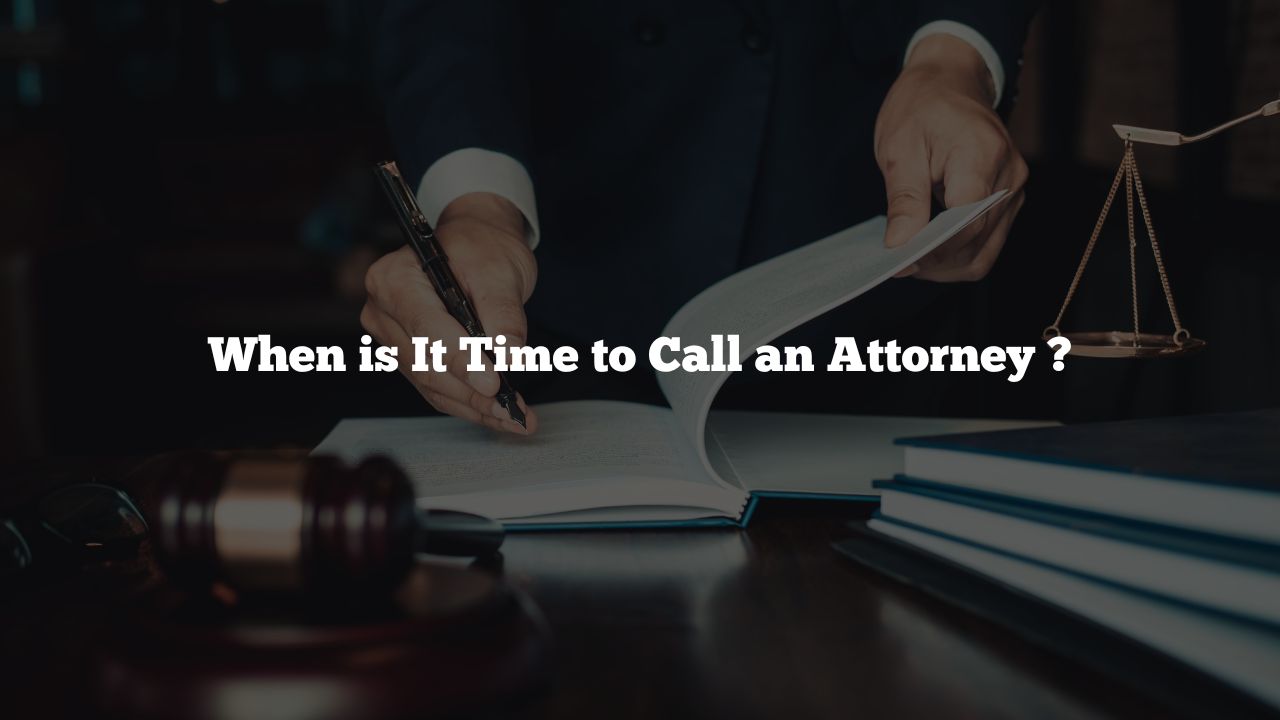A common mistake people make in difficult situations is waiting too long to hire an attorney. Often, this happens because people don’t appreciate what a lawyer can do for them and when it’s a good idea to contact one. To help with that, let’s explore why you need a legal representative, when you should hire one, and the benefits of choosing the right person or firm.
Why You Need an Attorney
As an American citizen, you have legal rights, and federal, state, and local laws inherently protect those privileges—at least in theory. In practice, individuals and groups may infringe on those rights, and it’s then your responsibility to challenge those trespasses and protect your rights. Often, this requires an attorney who understands every aspect of your rights and the violations against them and knows how to navigate the system to protect you. That doesn’t necessarily mean going to court. Simply having an advocate represent you is often enough.

Another prevalent issue is that individuals and groups often aren’t aware of their rights and the rights of others. Some rights are obvious, but many are not so clear. Laws can be broad and complex, and they often require an attorney with a nuanced understanding to make sense of them within the context of your situation. If you don’t know your rights, you don’t know when a breach occurs or how to protect yourself.
When You Should Contact an Attorney
That lack of comprehensive awareness of your rights is why you should be proactive in securing representation. As the adage goes, it’s better to be safe than sorry. There are times when it’s obvious you should call a lawyer. When the police arrest someone, that person should contact an attorney as soon as possible. They may need that attorney to prove their innocence or at least ensure that the state treats them in the fair manner afforded to them by the law.
That said, there are many reasons beyond the obvious to enlist the professional assistance of a lawyer. You should contact an attorney before getting married, for instance, to discuss whether a prenuptial agreement is worthwhile and to draft that contract for you if it is. People should also contact an attorney when getting divorced. Do-it-yourself divorces are a popular trend because they’re deemed cheaper, but attorneys offer affordable options like no-contest divorces. Having an attorney facilitate the divorce gives you peace of mind that you’ve protected your rights in the short term and long.
Injuries are another area where it’s not always clear whether you should contact an attorney. If you’ve been injured through no fault of your own—either at work or elsewhere—you should contact counsel right away. Even if nothing comes of it, you’ve taken the steps to protect yourself in the event the situation worsens. It’s a terrible situation to know that you’re seriously injured and that you should have contacted an attorney weeks ago. This is why you should contact a lawyer for most car accidents. Even if you’ve been in a fender bender and the other person’s insurer contacts you, don’t talk to them. Talk to a legal representative first.
The Benefits of Legal Representation
Speaking with an attorney is worthwhile because you’ll understand what your legal rights are and whether and how someone or some entity has infringed on them. When you choose an attorney to represent you, that person is your advocate and will explore all of your options with you. Your attorney will also provide you with legal guidance within your context. If you’re due restoration, an attorney will help you get the full compensation owed to you. Without representation, insurance companies will often treat you like a business obstacle and work to overcome it by paying you as little as possible rather than paying you what is fair.
Contacting an Attorney Is a Precaution
If you find yourself wondering whether or not you should call an attorney, you should. Many attorneys provide initial consultations at no cost and without obligation. You can even speak with multiple attorneys. That will provide you with a clearer understanding of your situation from a legal perspective without having to commit money and a significant amount of time.


![Best Car Accident Attorneys: Your Guide to Expert Legal Representation Best Car Accident Attorneys [Your Guide to Expert Legal Representation]](https://eachonefor.com/wp-content/uploads/2024/05/002.jpeg)
